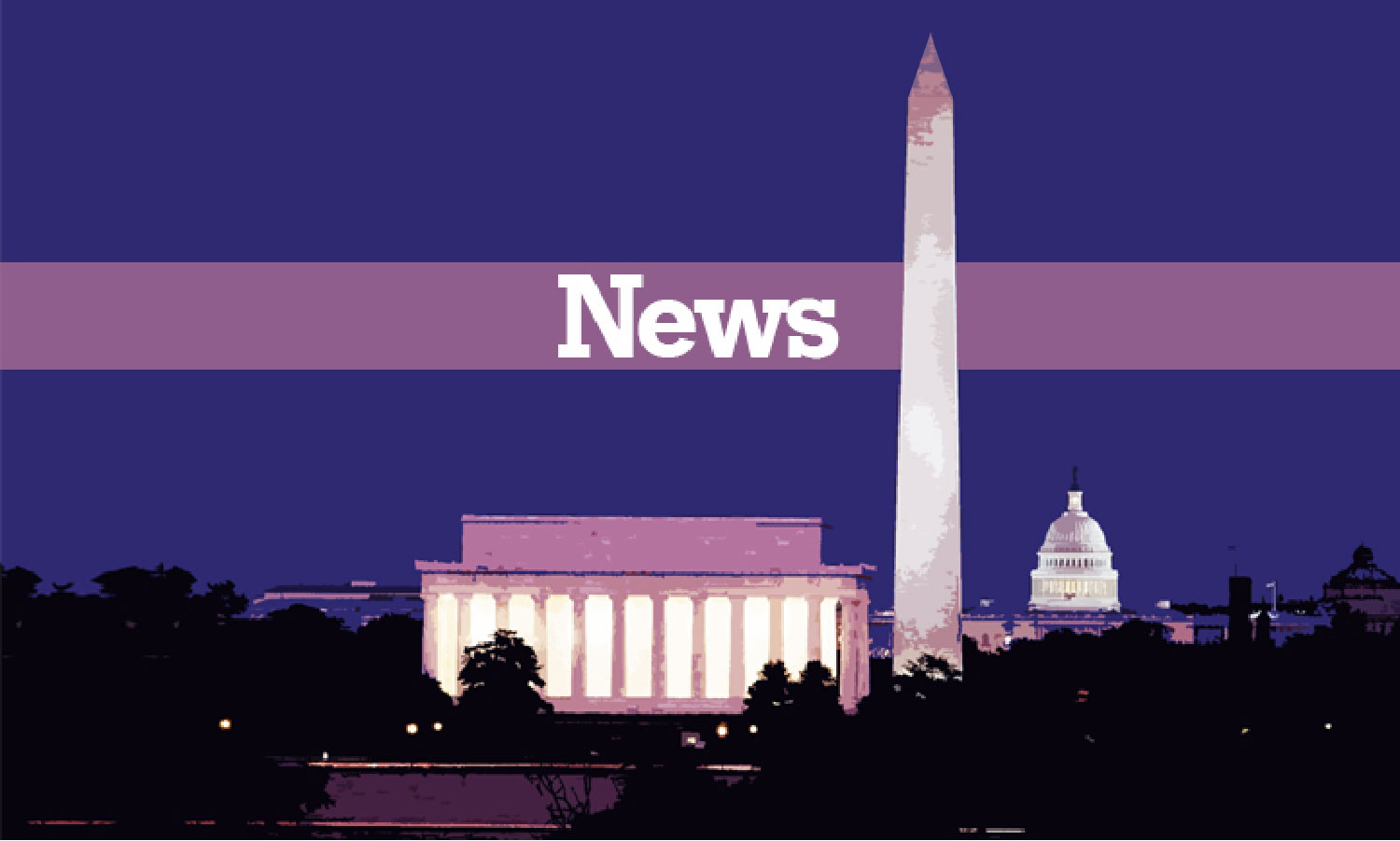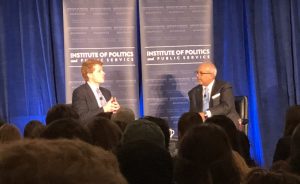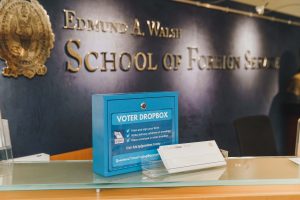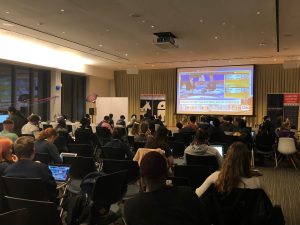This fall, Georgetown’s Institute of Politics and Public Service is hosting a cohort of fellows in person for the first time in three semesters. The Voice sat down with the fellows to provide them with the opportunity to share their thoughts on the current polarization in the aftermath of the 2020 presidential election, the role of the media in political discourse, and what they are hoping to learn from Hoyas in their weekly discussion groups.
This class of fellows includes Charlotte Clymer (SFS ’16), a prominent trans-rights activist and the former Press Secretary of the Human Rights campaign; Rebecca Pearcey, the former political director and senior advisor for Elizabeth Warren’s presidential campaign; Amna Nawaz, the chief correspondent for PBS NewsHour; Brian Stelter, the host of ‘Reliable Sources’ on CNN; Rory Cooper, a republican strategist and former comms director for Leader Eric Cantor (R-VA);and Ambassador Bob Lighthizer (C ’69, L ’73), the former U.S. Trade Representative under the Trump Administration.
Each of the fellows believes that while students can learn from their careers and experiences, they themselves have a lot to learn from discussions with students. “I want to know how they’re thinking about those difficult questions and what matters to them,” Cooper said.
Similarly, Nawaz noted the diverse set of perspectives that Georgetown students offer and how she plans to bring that back to her own work. “In these kinds of environments is where the big ideas come from and that’s to us and selfishly to me incredibly useful to be able to carry some of that back into practice into the work that I do,” she said.
Nawaz also expressed her hope that the fellows can act as a resource to students, particularly those who feel underrepresented and marginalized in political spaces. “I’ve gotten a lot of questions from young women who were more broadly curious about: how did you do it, how does it work?” she said.
Clymer emphasized her extreme admiration for the students and her belief in their ability to inform themselves with the information they need to be well-engaged citizens. “I don’t think it’s controversial to say that this group of students is the most well-informed generation ever, and so it’s going to be fascinating to see how they put information together and come to different conclusions than I would have come to,” she said. Clymer also disclosed how glad she is that LGBTQ+ youth are becoming increasingly more involved with political discourse, and how she hoped her discussion groups could create a space for LGBTQ students.
The fellows also reflected on the diversity found within their collective. “This is the moment where we get to have these different backgrounds and come together to talk about big issues facing the country,” Pearcey said, adding that she was excited at the kind of space the fellows program had created.
Some, like Clymer, had initial hesitations when first learning of the political diversity of the group, but now the collective has grown to appreciate the multitude of perspectives making up the group. “I don’t mind saying I was highly skeptical of being in the same group with a senior Trump official, but the ambassador has been a perfect gentleman– completely reasonable professional,” she said.
Clymer went on to encourage students to attend the discussion groups of those they disagree with, the fellows group being a model. “If nothing else, at least you get some insight into how folks think,” she said.
In the past, the Georgetown community has pushed back against the university hiring or working with officials from the Trump administration without developing certain criteria. That being said, the majority of student reactions to the fellows have been wildly positive, with little outcry to a senior Trump administration official being included in the class.
Matteo Caufield, the president of Georgetown’s Bipartisan Coalition, spoke to Lighthizer’s inclusion in the program. “As usual, the fellows represent a diverse set of public affairs backgrounds from news media, to campaign management, to high governmental offices. Ambassador Lighthizer fits easily into the category of high governmental offices,” Caufield said. “He hails from our own community and is a double Hoya, having graduated from the College and the Law Center and is best known for his work to renegotiate NAFTA, which is a huge deal.”
Moreover, he challenged the idea that students should work towards the exclusion of voices and perspectives they disagree with. “If you find issues with the ideas of an individual on campus, the most effective form of protest is seen in pointed questions that challenge the views and ideas presented, not shutting them down,” Caufield said.
The fellows spoke to the country’s current divisive political climate following the most recent election and how conversations between people of differing beliefs and affiliations are often more contentious than not.
Additionally, the fellows grappled with how our current media environment is harmful to public discourse and how students can handle this, something Stelter could particularly speak to with his experience at CNN.
“We’re entirely in a pull media environment, it will not be pushed to you. You have to pull it out and that’s going to remain and only going to be amplified and become more true,” Stelter said. In his discussion group, Stelter addresses issues of propaganda and information warfare and how to remove some of the poison and polarization in our current information and news ecosystem to create healthier public discourse in the United States.
After a year of hosting fellows in a virtual format, the GU politics fellowship program just concluded a successful semester filled with discussion about topics such as media polarization and diversity of political opinions.







